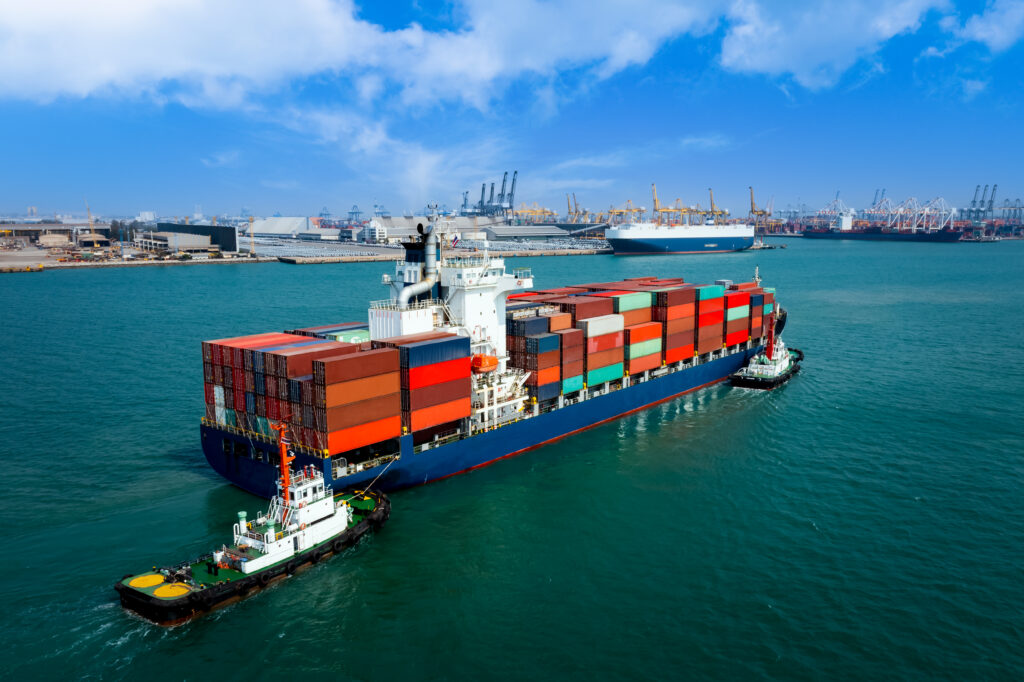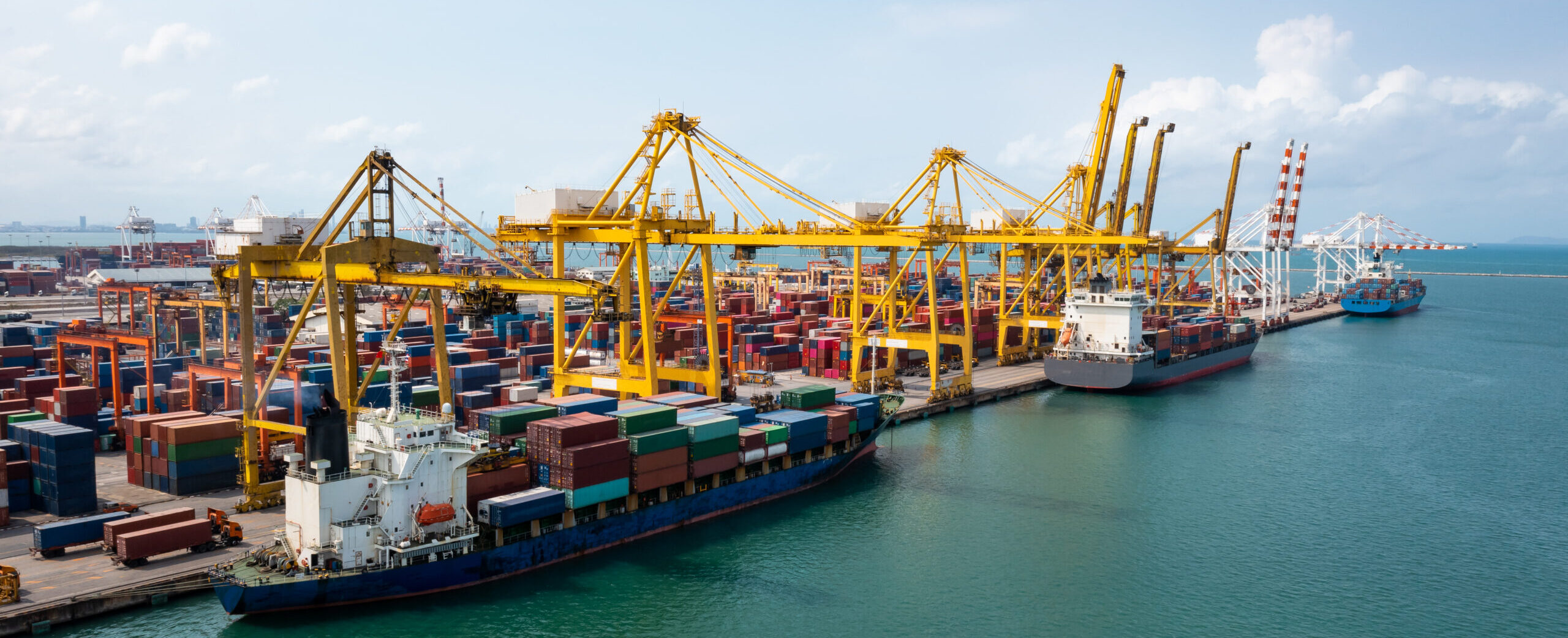As the Iran and Israel War intensifies, its impact is being felt far beyond the region, particularly across global supply chains.
With key shipping routes under threat and market volatility increasing, businesses are facing growing uncertainty.
The conflict has disrupted logistics flows, raised fuel costs, and forced many companies to reassess how they source, store, and transport goods.
The Iran and Israel War is not just a political flashpoint; it has become a critical test for supply chain resilience.
From manufacturing delays to inventory shortfalls, the pressure on operations is increasing across sectors, from retail and automotive to tech and healthcare.
In this report, we examine how companies are navigating the supply chain risks brought on by the Iran and Israel War.
We explore strategic responses, from redirecting vessels to advanced risk monitoring, offering insight into how businesses can stay agile amid escalating geopolitical tensions.
How to Protect Your Supply Chain Amidst Israel Iran War

The latest Iran Israel attack has thrust commercial corridors into chaos, and fast-moving Iran attack on Israel update reports suggest the situation could deteriorate further.
At Newl, we monitor these flashpoints in real time so we can keep freight moving and inventories safe for our clients.
Here’s where the pressure is building and how you can respond.
1. Maritime Bottlenecks on High Alert
UKMTO advisories show war-risk surcharges rising daily. A single missile strike in the Strait, already funneling a fifth of the world’s oil, could halt crude and LNG flows overnight.
The Red Sea, once merely threatened by Houthi raids, now faces spill-over violence as regional proxies react.
Make sure you screen UKMTO and IMB bulletins every shift. They provide real-time updates on maritime security incidents, including threats, suspicious activity, and attacks in high-risk waters
When cargo must transit these lanes, redirect vessels to safer hubs, pairing sea legs with bonded drayage for added security.
2. Cape Detours Strain Global Capacity
With most carriers avoiding the Red Sea, taking the longer route around Africa adds 7 to 13 days and about $1 million in extra fuel costs.
The detour traps vessels on longer loops, trimming effective fleet capacity by about 15 percent.
At Newl, we recalculate ETAs daily, widen customers’ safety stock windows, and use our cross-docking sites in Charlotte and Mississauga to shorten final-mile legs once ships arrive.
3. Procurement Delays from Raw Material Shortages
Many manufacturers rely on globally sourced raw materials, like aluminum, plastics, petrochemicals, and specialty metals, that pass through Asia, the Middle East, or Europe.
With the Iran–Israel conflict escalating, shipping lanes have slowed or rerouted, increasing lead times and decreasing availability of essential inputs.
Even if production isn’t Middle East–based, delays in Asia–Europe freight flow create global backlogs.
This forces companies to either pause production or stockpile materials, putting pressure on warehouse space and inventory budgets.
Newl enables clients build safety stock buffers and source alternate materials where possible.
We also offer flexible warehousing in key regions, allowing businesses to hold extra inventory locally and maintain continuity despite upstream delays.
4. Financial Shockwaves Still Loom
Every new Iran-Israel attack headline shakes fuel prices and causes stock market drops, while updates on Iranian strikes also create swings in currency markets.
Sudden premium hikes can blow up your budget halfway through the journey.
To stay ahead, businesses can explore fuel hedging strategies and multi-voyage rate agreements that help insulate them from sudden cost surges and intraday price spikes.
5. Insurance Costs Increase
Following the latest Iran Israel attack, insurance premiums for vessels and cargo moving through high-risk zones have surged dramatically.
War-risk surcharges are now being re-evaluated daily, especially for transits through the Strait of Hormuz, the Red Sea, and even ports in neighboring regions.
Some shipments are seeing premiums rise by 3x, pushing certain carriers to suspend routes entirely or pass these unforeseen costs down the chain.
This presents a hidden but serious supply chain risk: even booked freight may not move if insurers decline coverage, and buyers may be blindsided by rate hikes mid-transit.
To manage this risk, businesses should consider securing early-binding coverage for critical lanes, monitoring insurer advisories, and exploring modal or routing alternatives that offer more stability.
Global Economic Outlook Amidst the Iran Israel conflict
1. Oil Prices
Crude oil prices could spike dramatically, especially if access to the Strait of Hormuz, through which a third of global seaborne oil passes, is restricted.
Any sustained disruption would send shockwaves through energy markets and strain fuel-dependent industries.
2. Inflation
Rising energy prices could make inflation worse around the world, increasing the cost of transport, manufacturing, and everyday items.
In countries already struggling with inflation, this could lead to a serious cost-of-living crisis.
3. Supply Chains
The Iran Israel conflict poses a significant threat to global logistics, with risks of shipping route closures, vessel attacks, and surging insurance premiums.
Essential goods could become scarce, bringing critical manufacturing sectors to a standstill.
4. Investment
Prolonged instability could sharply reduce global economic output, ushering in a recession, or in a worst-case scenario, a depression.
Sky-high energy prices and broken supply chains would choke productivity and consumer demand worldwide.
Final Thoughts
The Iran Israel conflict is a stark reminder that global supply chains are not just operational systems, they’re geopolitical pressure points.
From disrupted sea lanes and rerouted air cargo to skyrocketing insurance premiums, the ripple effects are wide and immediate.
For logistics teams, the ability to act quickly and adapt intelligently has never been more critical.
At Newl, we’re working alongside our clients every day to protect inventory flow, re-map freight strategies, and stay one step ahead of the crisis.
Whether it’s securing safer trade lanes or expanding buffer stock through our warehousing network, our goal is simple: keep your business moving, even when the world slows down.
If you’re feeling the pressure of the next Iran attack on Israel update, now is the time to build resilience into your supply chain.
Frequently Asked Questions
1. How can my business prepare for supply chain disruption during the Iran Israel conflict?
Start by identifying high-risk routes and suppliers.
Build up inventory buffers, explore alternative logistics channels, and work with partners who offer live route visibility, insured transit options, and warehousing support.
2. Is air freight a safer option right now?
Air freight can bypass maritime risks, but restricted airspace and rising fuel costs make it unpredictable.
Newl offers multimodal solutions to balance speed, cost, and capacity while securing air space in advance.
3. What can I do if insurance premiums spike mid-shipment?
Partner with a provider that monitors risk zones in real time. It should help lock in premiums early, offer route adjustments when needed, and provide short-term warehousing to offset rising insurance costs.
